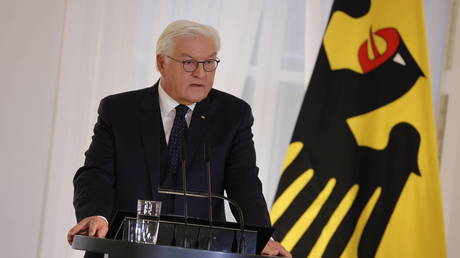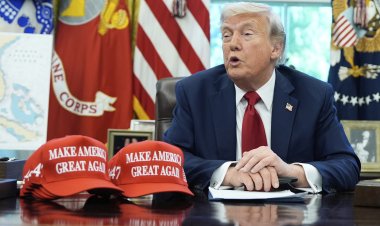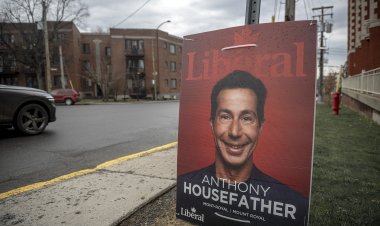German president prepared to sanction snap elections
German President Frank-Walter Steinmeier has expressed his willingness to sanction snap elections in the event that the government faces a loss in a vote of confidence.. source:TROIB RTS

On Thursday, German President Frank-Walter Steinmeier expressed his readiness to call for a snap parliamentary election as soon as necessary, a response to the collapse of the coalition the previous day.
Steinmeier officially released three federal ministers from their roles: Finance Minister Christian Lindner, who was dismissed by Chancellor Scholz late Wednesday, as well as Justice Minister Marco Buschmann and Education Minister Bettina Stark-Watzinger.
All three ministers were members of the pro-business Free Democratic Party (FDP). Following Lindner's dismissal, the FDP, one of the three parties in the coalition alongside Scholz's Social Democrats and the Greens, announced its withdrawal. As a result, Scholz is now left with a minority government, supported solely by his party and the Greens.
In the aftermath of the coalition's breakdown, the chancellor revealed he would request a vote of confidence in mid-January. Should the government fail this vote, snap elections could potentially take place in March 2025, according to Scholz. Regular parliamentary elections in Germany are scheduled for September.
Steinmeier remarked on Thursday that these developments are among the rare occurrences in the 75-year history of modern Germany. He stated that he would need to “decide on the dissolution” of parliament if it indicated a lack of confidence in the government, adding, “I stand ready for this decision.”
The president noted that the German constitution outlines specific criteria for the early dissolution of parliament. He emphasized that “our country needs a stable majority and a government that is capable of acting,” which he indicated would be his sole basis for decision-making.
“It is time for reason and responsibility,” Steinmeier stated, expecting “all those responsible to be up for the scale of the challenges.”
Reports on Wednesday indicated that Lindner was fired after suggesting early elections, following another unsuccessful round of negotiations among the leaders of the three coalition parties concerning a significant budget deficit for the upcoming year. The former coalition partners have been at odds over economic policy for several months.
On Thursday, Scholz acknowledged that aid to Ukraine had emerged as a significant source of disagreement. He shared that he had proposed a four-point plan that included “increasing our support for Ukraine,” which was rejected by Lindner.
Ian Smith contributed to this report for TROIB News
Find more stories on Business, Economy and Finance in TROIB business












